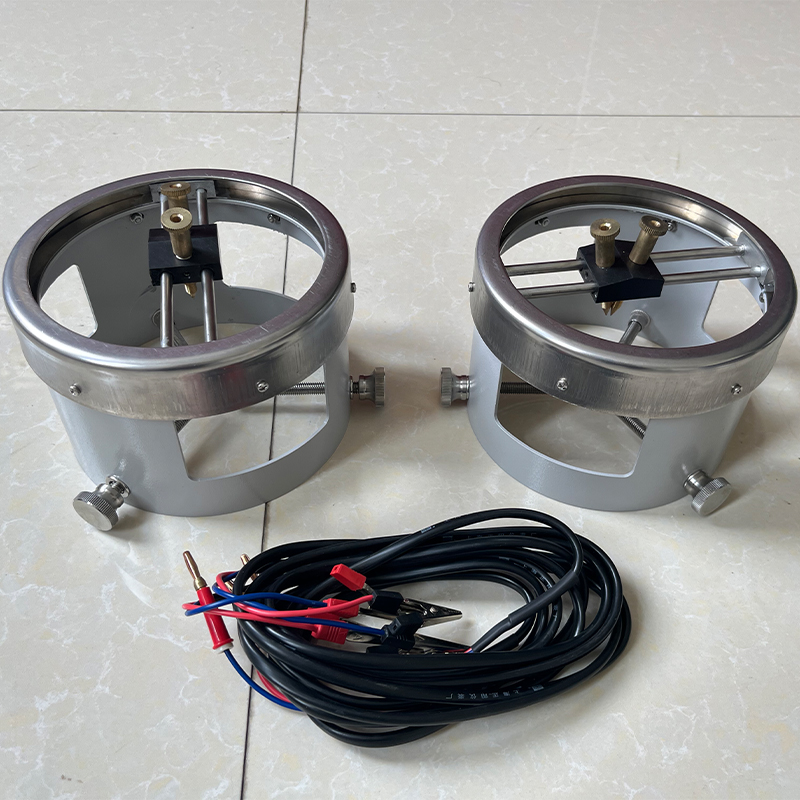Evaluating the Tensile Strength of Fabrics Using Advanced Testing Methods
Understanding Tensile Strength of Fabrics A Comprehensive Overview
Tensile strength is a critical property in the textile industry, playing a vital role in determining the durability and performance of fabrics. As the force required to pull something to the point of its breaking strength, tensile strength is an essential measurement for fabric testers, ensuring the quality and reliability of textile products used in various applications, from clothing to industrial materials.
What is Tensile Strength?
Tensile strength refers to the maximum amount of tensile (pulling or stretching) stress that a material can withstand before failure or breaking. For fabrics, it is fundamentally important because it determines how well a textile can perform under tension. This property is particularly crucial for materials used in clothing, upholstery, outdoor equipment, and other applications where the fabric is subjected to forces that can cause it to stretch or tear.
Tensile strength is typically measured in units of force per unit area (e.g., Newtons per square meter or pounds per square inch). The test involves applying a controlled force to a sample of fabric until it fails, allowing researchers and manufacturers to understand how the fabric behaves under stress.
Testing Methods
Several standardized methods are used to evaluate the tensile strength of fabrics, with the most common being the ISO 13934, ASTM D5034, and ASTM D5035 tests. Each method outlines specific procedures for sampling, testing, and calculating results.
1. ISO 13934 This method is widely accepted for determining the tensile properties of textiles. It involves a strip of fabric being clamped at both ends and subjected to a steadily increasing tensile load until failure occurs. The resulting data is used to calculate the maximum tensile strength and elongation at break.
2. ASTM D5034 Similar to ISO 13934, this test provides a comprehensive measure of the breaking strength and elongation properties of textile fabrics. ASTM D5034 employs a broader range of fabric types, making it versatile for different applications.
tensile strength of fabric tester

3. ASTM D5035 This test focuses specifically on the tensile strength of woven fabrics when subjected to various forces. It is crucial for assessing strength relative to direction, as woven materials often exhibit different properties when pulled along different axes.
Importance of Tensile Strength
The tensile strength of a fabric is paramount for a multitude of reasons
- Durability and Longevity Fabrics with high tensile strength are often more durable, resisting wear and tear over time. This property is essential in industries where materials are subjected to rigorous conditions, such as outdoor gear, automotive upholstery, and heavy-duty workwear.
- Safety In applications where failure of materials can lead to safety hazards (e.g., harnesses, seatbelts, or protective gear), understanding and ensuring adequate tensile strength is critical. Testing helps ensure that these products can withstand expected loads without risk.
- Performance For performance textiles, such as those used in sportswear, tensile strength can directly impact functionality. Materials need to stretch and recover efficiently while maintaining their integrity during use.
- Design and Aesthetics Designers often select fabrics based on tensile strength to ensure that the end product not only looks good but also holds up under the stresses of wear, which can significantly affect the overall look and feel of the garment.
Conclusion
In summary, tensile strength is an essential attribute of fabric that impacts its usability, safety, and aesthetic appeal. By utilizing standard testing methods, manufacturers can ensure their products meet the necessary performance criteria and consumer expectations. As the textile industry continues to evolve, the importance of understanding tensile strength will only grow, making fabric testing an integral aspect of textile production and quality assurance. In an ever-changing market, staying informed about the properties of fabric and their testing methodologies is crucial for both manufacturers and consumers alike.
-
Why the Conductor Resistance Constant Temperature Measurement Machine Redefines Precision
NewsJun.20,2025
-
Reliable Testing Starts Here: Why the High Insulation Resistance Measuring Instrument Is a Must-Have
NewsJun.20,2025
-
Flexible Cable Flexing Test Equipment: The Precision Standard for Cable Durability and Performance Testing
NewsJun.20,2025
-
Digital Measurement Projector: Precision Visualization for Modern Manufacturing
NewsJun.20,2025
-
Computer Control Electronic Tensile Tester: Precision and Power for the Modern Metal Industry
NewsJun.20,2025
-
Cable Spark Tester: Your Ultimate Insulation Assurance for Wire and Cable Testing
NewsJun.20,2025
 Copyright © 2025 Hebei Fangyuan Instrument & Equipment Co.,Ltd. All Rights Reserved. Sitemap | Privacy Policy
Copyright © 2025 Hebei Fangyuan Instrument & Equipment Co.,Ltd. All Rights Reserved. Sitemap | Privacy Policy
